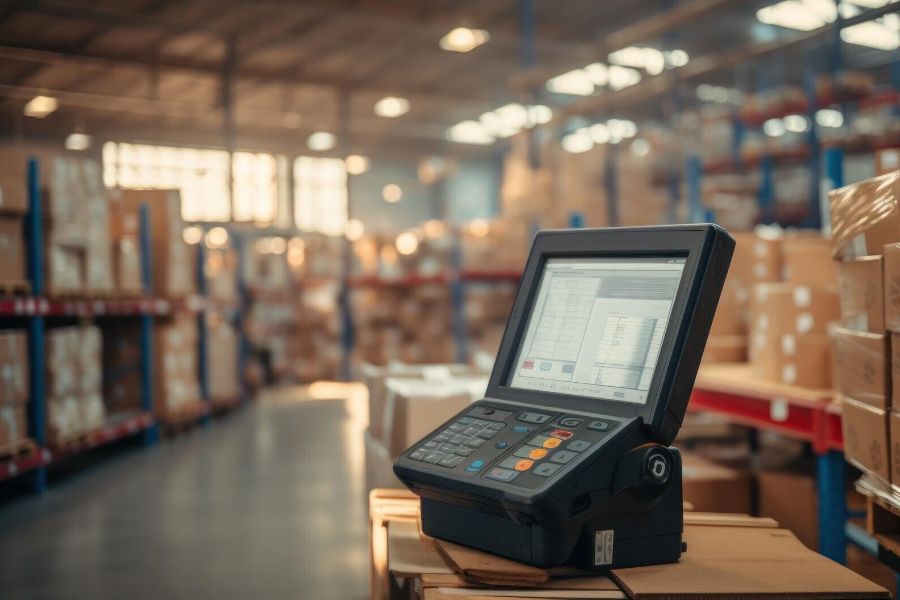Retail clienteling software empowers businesses to enhance customer engagement, personalize interactions, and drive sales through data-driven insights. By leveraging this innovative technology, retailers can streamline operations, strengthen customer relationships, and stay ahead of the competition. However, navigating the complexities of selecting, implementing, and managing retail clienteling software requires careful consideration of key factors. This article explores the essential considerations and best practices for operating retail clienteling software, ensuring optimal performance, and maximizing business outcomes.
Importance of Selecting The Right Clienteling Software
Choosing the right retail clienteling software ensures that retailers can effectively harness the power of customer data to personalize interactions, anticipate needs, and deliver exceptional experiences. With the right software in place, retailers can gain valuable insights into customer preferences, purchase history, and behavior, enabling them to tailor their offerings and marketing efforts accordingly.
Moreover, the right retail clienteling software facilitates seamless integration with existing systems, streamlining operations and enhancing efficiency. It empowers retail staff with real-time access to customer information, enabling them to provide personalized recommendations, resolve inquiries promptly, and deliver superior service across all touchpoints.
In addition, selecting the right retail clienteling software means ensuring compliance with data privacy regulations such as GDPR and CCPA, safeguarding customer information, and maintaining trust.
Key Features of Retail Clienteling Software to Consider
Retail clienteling software plays a crucial role in enhancing customer engagement and driving sales.
When selecting the right software for your business, it’s essential to consider the following key features:
- Customer data management: Efficient management of customer data is crucial for understanding their preferences, purchase history, and behavior. Look for software that enables effective capture and organization of customer data, allowing for personalized interactions and targeted marketing campaigns.
- Personalization capabilities: Having strong personalization capabilities is crucial for exceptional customer experiences. Choose software that allows you to tailor product recommendations, promotions, and communications based on individual customer preferences and buying behavior.
- Integration with CRM systems: For better customer targeting and data consolidation, look for software that seamlessly integrates with your existing CRM platform. This will allow for a unified view of customer interactions across all channels.
- Mobility and accessibility: In the digital age, customers expect seamless shopping experiences across various devices and locations. Ensure that the retail clienteling software you choose is mobile-friendly and accessible from anywhere, empowering your staff with real-time information to better serve customers on the go.
- Reporting and analytics: Having comprehensive reporting and analytics capabilities is important for tracking performance, identifying trends, and making data-driven decisions. When searching for software, it’s essential to find one that offers robust reporting tools that allow you to measure the effectiveness of your clienteling efforts and optimize strategies for maximum impact.
Pricing Models of Retail Clienteling Software
When selecting retail clienteling software, understanding the available pricing models is essential to make an informed decision that aligns with your budget and business needs.
Here are the common pricing models for retail clienteling software:
- Subscription-based pricing: Subscription-based pricing is a model in which you pay a recurring fee at regular intervals, such as monthly or annually, to access software and its features. This pricing model offers flexibility and scalability, allowing retailers to adjust their subscriptions based on usage and requirements. Additionally, it often includes ongoing support and updates to ensure the software remains current and effective.
- Tiered pricing plans: Tiered pricing plans provide a variety of software packages, each with different levels of functionality, support, and pricing. This approach allows retailers to choose the package that best suits their needs, regardless of their business size. As their business grows and requirements change, retailers can easily upgrade to higher tiers, making this model highly scalable.
- Customized pricing options: Customized pricing options involve negotiating a tailor-made pricing plan with the software vendor that is based on specific business needs, usage requirements, and budget constraints. This pricing model is suitable for retailers who have unique requirements or who are seeking a more personalized approach to pricing. Customized pricing options may include add-ons, integrations, or other customizations that are tailored to the retailer’s specific needs.
Customization Options
Customization plays a pivotal role in ensuring that retail clienteling software meets the unique needs and requirements of each business. Here are some key customization options to consider:
- User interface customization: Tailor the user interface of the software to align with your brand identity and improve user experience. This includes adjusting colors, fonts, and layout to create a cohesive and intuitive interface for your staff.
- Integration with existing systems: Choose a retail clienteling software that seamlessly integrates with your existing systems, such as inventory management or CRM software. Integration ensures data consistency and streamlines workflows across different platforms.
- Tailored solutions for specific business needs: Look for a software provider that offers tailored solutions to address your specific business needs. Whether you require specialized features for your industry or unique customization options, opt for a software solution that can be tailored to suit your requirements.
Compliance Considerations for Clienteling Software
When selecting retail clienteling software, it’s essential to consider compliance with various regulations to protect sensitive customer data and ensure legal compliance:
- Data privacy regulations (GDPR, CCPA): Ensure that the software complies with data privacy regulations such as the General Data Protection Regulation (GDPR) and the California Consumer Privacy Act (CCPA). This includes implementing measures to secure customer data and obtaining necessary consent for data processing.
- Payment card industry data security standard (PCI DSS) compliance: Verify that the software adheres to PCI DSS standards to safeguard payment card data and prevent unauthorized access. Compliance with PCI DSS ensures the secure handling of customer payment information during transactions.
- Industry-specific regulations: Consider industry-specific regulations that may apply to your business, such as healthcare or financial services regulations. Ensure that the software complies with relevant industry standards and regulations to avoid legal repercussions and maintain trust with customers.
Implementation and Training for Retail Clienteling Software
Smooth implementation and comprehensive training are essential for maximizing the benefits of retail clienteling software:
- Onboarding process: Choose a software provider that offers a structured onboarding process to guide you through the software’s implementation and setup. A well-planned onboarding process minimizes downtime and ensures a smooth transition to the new system.
- Training and support resources: Access to training and support resources is crucial for ensuring that your staff can effectively use the software. Look for a software provider that offers comprehensive training materials, tutorials, and responsive customer support to address any questions or issues that may arise.
- Scalability and future expansion: Consider the scalability of the software to accommodate future growth and expansion of your business. Choose a software solution that can scale with your business needs and adapt to changes in your industry or market.
ConnectPOS: Your Trusted Partner in Clienteling
ConnectPOS offers a powerful clienteling software solution for retailers who want to enhance their client relationships. The software comes with a range of customizable features that cater to the diverse needs of modern retail businesses.
The software’s adaptable interface allows retailers to personalize their interactions with customers, ensuring a tailored shopping experience. ConnectPOS also integrates seamlessly with existing systems, ensuring consistency of data and compliance with stringent data privacy standards for a secure and efficient operational framework.
Besides clienteling, ConnectPOS provides a comprehensive suite of tools designed to optimize overall selling performance. These tools include advanced inventory management, dynamic pricing strategies, and detailed sales analytics. The features work together to anticipate and understand customer needs while streamlining operations and maximizing sales efficiency.
FAQs: Key Considerations for Retail Clienteling Software
- How does retail clienteling software integrate with CRM systems?
Retail clienteling software typically integrates with customer relationship management (CRM POS) systems through APIs (application programming interfaces) or pre-built connectors. This integration allows for seamless data sharing between the two systems, ensuring that customer information, interactions, and transactions are synchronized across platforms. By integrating with CRM systems, retail clienteling software enhances customer engagement by providing access to comprehensive customer profiles, purchase history, and preferences, enabling personalized interactions and targeted marketing efforts.
- What pricing models are commonly offered for retail clienteling software?
Retail clienteling software is often offered with various pricing models to accommodate different business needs and budgets. Common pricing models include subscription-based pricing, where users pay a recurring fee for access to the software and its features. Tiered pricing plans may also be available, offering different levels of functionality and support based on the selected tier. Additionally, some vendors offer customized pricing options tailored to specific business requirements, allowing retailers to negotiate pricing based on usage, customization, and scalability needs.
- Can retail clienteling software be customized to suit specific business needs?
Yes, retail clienteling software can often be customized to suit specific business needs. Many vendors offer customization options such as user interface customization, integration with existing systems, and tailored solutions for specific business requirements. Retailers can work closely with software providers to identify their unique needs and preferences and customize the software accordingly. Customization ensures that the software aligns with the retailer’s branding, workflows, and objectives, optimizing its effectiveness and usability.
- What compliance considerations should retailers keep in mind when operating retail clienteling software?
Retailers should consider several compliance considerations when operating retail clienteling software to ensure the protection of customer data and legal compliance. Firstly, retailers must ensure compliance with data privacy regulations such as the General Data Protection Regulation (GDPR) and the California Consumer Privacy Act (CCPA). This includes implementing measures to secure customer data and obtaining necessary consent for data processing. Additionally, compliance with payment card industry data security standards (PCI DSS) is essential to safeguard payment card data and prevent unauthorized access. Retailers should also be aware of industry-specific regulations that may apply to their business, such as healthcare or financial services regulations, and ensure that the software complies with relevant industry standards and regulations.
Conclusion
Understanding the key considerations when operating your retail clienteling software is essential for optimizing your retail operations and enhancing customer experiences. By carefully evaluating factors such as customization options, compliance considerations, and implementation strategies, you can ensure the effectiveness and success of your software deployment.
If you are seeking a solution for clienteling, ConnectPOS can be an ideal choice. Contact us today to see the power of ConnectPOS!
►►► See our products: Magento POS, BigCommerce POS, Shopify POS, Woocommerce POS, NetSuite POS, Commercetools POS, Custom POS, White label POS, Customer Experience Solution and Next-Gen POS




